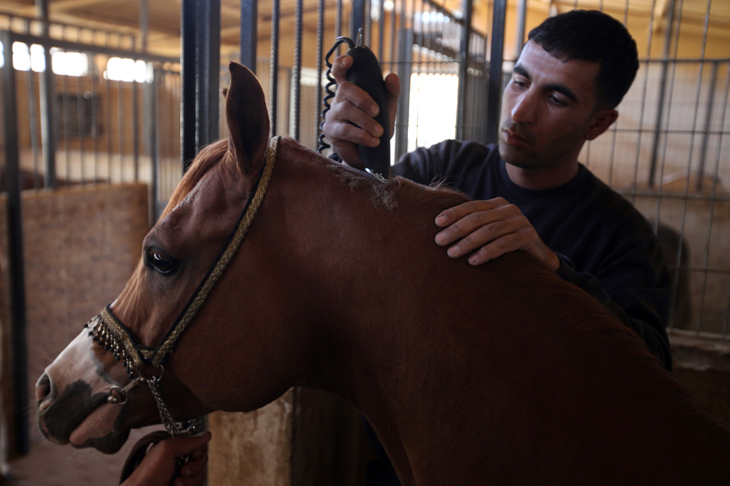One of the most intriguing expressions to come out of the pandemic so far is ‘deep cleaning’. We read that the factory that makes Mars bars, the Nestle plant, two abattoirs, and countless schools and cafes are being closed for ‘deep cleaning’ because someone tested positive. The expression is not exclusively Australian. However it appears to be far more common here than in any other part of the infected English speaking world. I checked with the Oxford English Dictionary and so far the Oxford scholars seem not to have heard of it.
In Britain they are satisfied with just the word ‘cleaning’ alone, regardless of the depths to which the cleaners plunge.
In many of the offices I’ve worked in over the years the contractors seemed satisfied with a quick flick with the duster, emptying the paper bins and giving the carpets a vacuum once a year (whether they needed it or not). Presumably the new adjective tells us that cleaning teams are now going beyond that. But ‘deep’ remains an odd qualifier, since we are told that it is surfaces that carry bacteria and viral droplets. At any rate ‘deep cleaning’ is now an expression (along with ‘social distancing’, ‘covidiot’ and the rest) that the coronavirus has added to our personal glossaries. And the industry has taken notice. The expression ‘deep cleaning’ now appears on the promotional websites of a number of domestic and industrial commercial cleaners. But this may not have been a service they were offering before Covid. It may simply be a bandwagon they saw shooting past and leaped on to.
What I’m waiting for is the company that offers ‘shallow cleaning’. Now that would be honest advertising!
Another word that has taken on an ominous new meaning since something unpleasant escaped from Wuhan is ‘cluster’. This began life as a perfectly respectable term, usually applied to fruit or flowers (‘a cluster of grapes’). This Anglo-Saxon word is related to a bunch of similar ancient Germanic words, their root meaning ‘a collection of things of the same kind’. Today what is clustering together is a gene pool of coronavirus, happily hopping from host to host.
Mind you, this is not the first time ‘cluster’ has had a sinister side to it. We already had the ‘cluster bomb’ and it was possible to suffer from ‘cluster headaches’.
Also new to most of us, and growing out of the battle against Covid, is ‘contact tracing’. But this is not a new coinage. It’s first recorded in 1910 and, interestingly, seems to be our invention. The Australian language has always been a creative one, and has contributed at least 10,000 expressions to the worldwide English speaking family. The earliest recorded citation for ‘contact tracing’ is from the October 1910 edition of the Australasian Medical Gazette in an article about school epidemics. It talks about the importance of the school nurse in ‘swab-taking, contact tracing, and similar necessary details’. So whether or not Australia gives the world a coronavirus vaccine, we have already provided everyone with a name for tracking down those who have met a Covid carrier, because we have coined (and shared with the world) ‘contact tracing’.
Just when did ‘grooming’ change its meaning? Once it meant sprucing yourself up for a night out. If your appearance could be called sheveled or even peccable then you had taken proper care of your personal grooming. Or, to use the old Aussie equivalent, you were all dressed up like a pox doctor’s clerk.
But now ‘grooming’ is something unpleasant that paedophiles do to their young prey as a prelude to assaulting them. It’s a word being tossed about to describe the alleged role Ghislaine Maxwell had in Jeffrey Epstein’s callous operations. The history is that ‘grooming’ in the original sense of taking care of your appearance dates from 1810. By the 1920s it had taken on the added meaning of preparing another, as in ‘he was being groomed to become an opening batsman for the team’. But the meaning remained positive. And it was this kind of ‘grooming’ on which the paedophiles modelled their behaviour. The earliest use of this ugly sense of ‘grooming’ so far discovered is from 1985 (in a Chicago Tribune report on child abuse). By the way, is ‘grooming’ something people still do to horses? And, if so, can a stable hand be charged under ‘anti-grooming’ laws?
Is it just me, or are others irritated by the butcher’s sign that offers ‘organic’ beef? What I can’t imagine is just what ‘inorganic’ beef might be like. Something which is ‘organic’ comes from the tissues of a living thing (something that has organs). Inorganic chemistry looks at those substances that don’t have organs (that are not living things). Am I being a pedant when I insist that all beef is ‘organic’? And what could ‘inorganic’ beef possibly made out of? Iron filings?
Got something to add? Join the discussion and comment below.
Get 10 issues for just $10
Subscribe to The Spectator Australia today for the next 10 magazine issues, plus full online access, for just $10.
Kel Richards has written seven books about words and language
You might disagree with half of it, but you’ll enjoy reading all of it. Try your first month for free, then just $2 a week for the remainder of your first year.














Comments
Don't miss out
Join the conversation with other Spectator Australia readers. Subscribe to leave a comment.
SUBSCRIBEAlready a subscriber? Log in